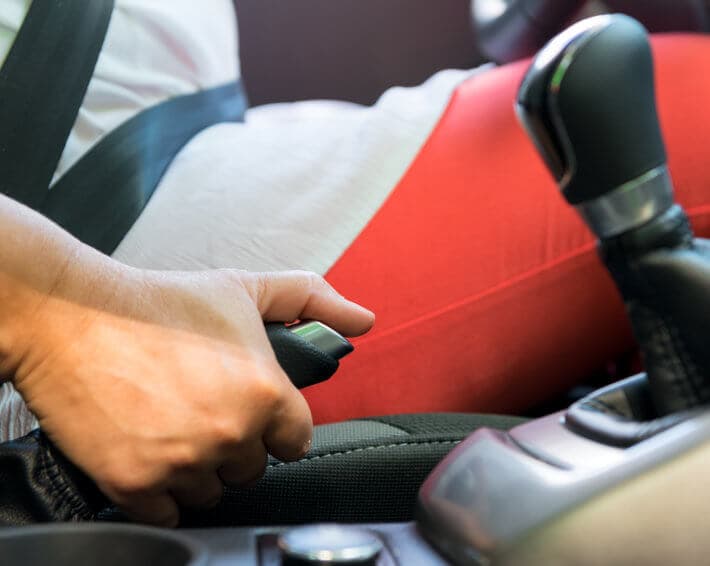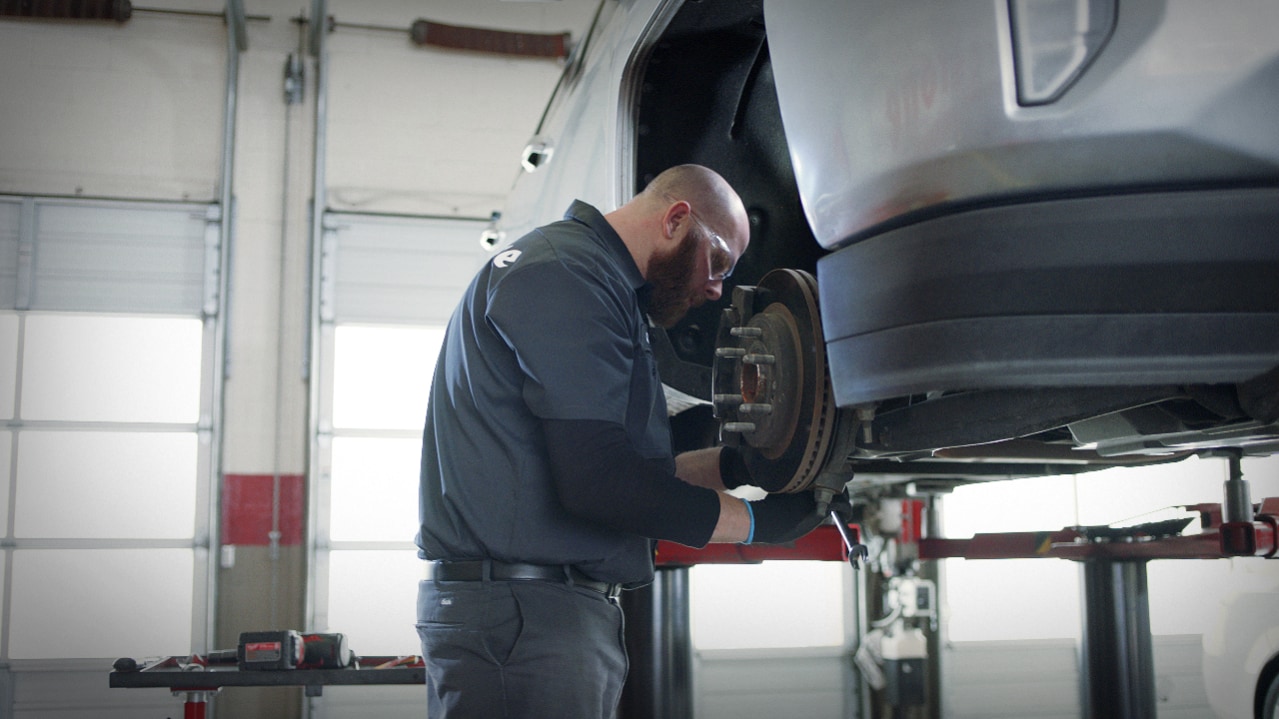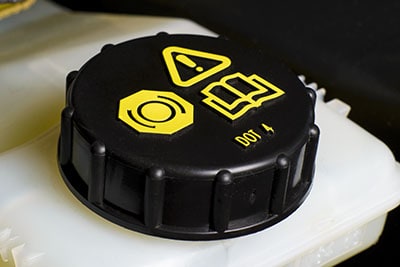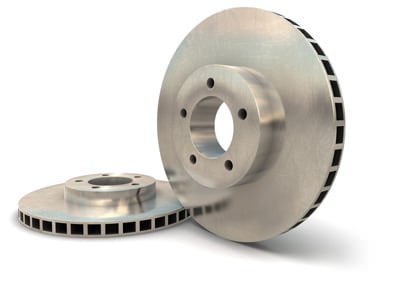Does this sound familiar? An unlucky soul is speeding down a huge hill when they discover that their brakes are completely MIA. The driver's eyes widen with panic before the car ultimately screeches to a halt after various, unrealistic driving maneuvers. The tires are smoking and the driver emerges from the vehicle looking disheveled, holding the detached emergency brake in one hand and the steering wheel in the other. Contrary to what Hollywood dramatizations may have you believe, screaming your head off isn’t the best way to stop your car when the brakes fail. Here’s how to tell if your brakes could be about to fail, and if they do, how you can safely (and calmly) navigate your car to safety.
Signs Your Brakes May Be Failing
There are a few key signs your brakes may be on their way out, including a "mushy pedal," the feeling that your car is pulling to one side, and a loud squeal when braking.
First, let's talk "mush." If your brake pedal drops to the floor at the slightest touch, it could be a sure sign your brakes need a check up. Low pressure in your brake pedal could indicate worn brake pads, a fluid leak in your brake lines, or another problem with your hydraulic system.
Is you car pulling to one side when braking? This could be a sign of uneven wear on your brake pads, or that one of your brake calipers is stuck. If one of the calipers is stuck, you'll feel a pull regardless of whether or not you're braking.
Screech! No, we didn't just spot your favorite, Saved By the Bell character! Brake pads are designed to alert you when they need replacing, which is why they're made with a special metal indicator. When the brake pads wear down, the indicator comes into contact with the rotor and makes a high-pitched hissing or screeching sound.
If you're experiencing any of these symptoms (or if your brakes aren’t working like they used to) make an appointment with one of Firestone Complete Auto Care’s automotive repair experts for a comprehensive brake inspection and repair today. For more help diagnosing your brake problems, check out: Know the Signs & Stay Ahead of Brake Problems!
How to Stop Safely When Your Brakes Fail
Though well-maintained brakes rarely fail, you never know when the unexpected may occur. Make sure you know how to safely stop in the event of a brake emergency.
First, pump the brake pedal three or four times. This could help build up enough pressure in your brake line to slow your speed. Pumping the brakes will also cause the brake lights to flash, giving the driver behind you an early warning sign that something is amiss. If pumping your brakes doesn’t have the desired effect, turn on your hazard lights and proceed to the next step. If you can, now is a great time to downshift to a lower gear as well.
Second, gradually apply your parking brake. Pull up all the way on your parking brake. If you feel the tires start to skid, ease your foot back onto the brake pedal so that you don’t lose control. The parking brake has only half of the stopping power of your pedal brakes, so it’ll take about twice the distance to bring your car to a complete halt.
Finally, find a soft, safe spot to bank your car. Wait until you have slowed down to a speed under 20 mph and pull off the road. Grass, weeds, and dirt all create more friction than pavement and will help bring your car to a complete stop. Now, take a deep breath. You deserve it!
Pro-tip: Whatever you do, DON'T cut the engine if your brakes fail. Although it may be tempting, cutting your engine will cause the steering wheel to lock and you won’t be able to control the car.
While brake failure may seem like a pretty scary ordeal, the folks at CarTalk note that these days, it's very hard to lose all of your brakes. "Cars have dual braking systems, so if you wanted to cut someone's brake line and cause him to drive over a cliff to his certain death, these days you'd have to cut more than one of his brake lines. And in the real world, without mischief involved, it's unlikely that both halves of the brake system would fail simultaneously." While a total failure is unlikely, it's better to be safe than sorry when you're traveling at top speeds on crowded highways!
Now that you know how to stop a car with limited braking capabilities, it's time to do what you can to make sure you never have to use that knowledge. Visit your local Firestone Complete Auto Care for brake service and repair. Schedule an appointment online or swing by your local Firestone Complete Auto Care for a quick checkup today!



